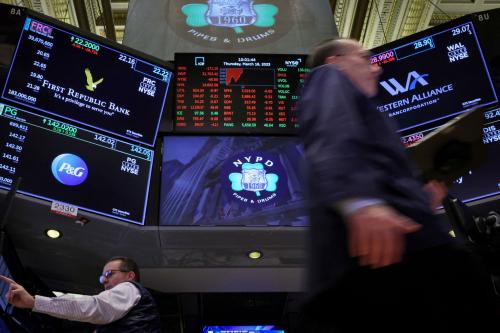With a persistent economic downturn spreading across North Africa, ensuing social disruptions and rising political instability especially in Egypt and Tunisia, one might wonder what role Western actors are trying to play in the region. As the new US Secretary of State traveled to Egypt and pushed for an end of divisive political bickering on the road to new parliamentary elections, forcefully insisting on economic reforms to finalize a $4.8 billion IMF loan, Europe was nowhere to be seen.
However, on March 20th, following its own bureaucratic schedule, the European Commission came out with an assessment of the European Neighbourhood Policy (ENP) and the annual reports on the progress status of a number of ENP countries, among which Egypt.
The EU openly recognizes it must work with other partners in order to support political and economic transitions. Many external actors are engaged and contribute to shape the pace and direction of political change, first and foremost the US and Gulf countries. With the creation in 2012 of EU bilateral “task forces” with Egypt, Tunisia and Jordan, we have seen greater coordination among international donors in terms of economic support. What has not (yet) materialized is greater multilateral political coordination in terms of which joint messages to get across to these countries’ political establishments when democratic backsliding occurs. The EU acknowledges that economic and political developments are intertwined and tries to influence the latter by focusing on the former. Brussels has so far committed 3.5 billion euros to the southern neighborhood for the 2011-2013 period and more recently 300 million euros in smaller grants. Compared to that, the US on March 10thagreed to allot a package of $190 million in aid to Egypt from a commitment of $450 million aimed at industrial support.



Commentary
Op-edThe EU and North Africa: Defining the Criteria for Effective Partnership
March 26, 2013